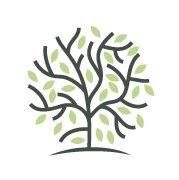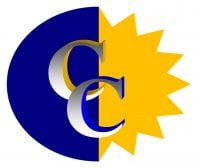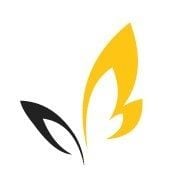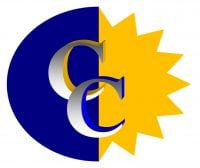Breaking the Chains
Drug Rehab Center in Fayetteville, Georgia
Breaking the Chains is a community-focused treatment facility in Fayetteville, Georgia, providing comprehensive and individualized care for addiction and substance abuse, including evidence-based practices, holistic methods, and unique therapies such as music and art therapy, yoga, and horticultural therapy.
About Breaking the Chains in Georgia
Breaking the Chains, a private rehab nestled in Fayetteville, Georgia, specializes in treating individuals grappling with alcoholism, drug addiction, and the complex interplay of mental health and substance abuse. With a steadfast commitment to community and person-centered care, Breaking the Chains aims to restore hope and foster lasting recovery.
• Comprehensive, individualized treatment plans tailored to each client's unique needs
• Evidence-based practices combined with holistic methods to heal the mind, body, and spirit
• Wide range of services, including intensive inpatient/outpatient programs, therapy, medication-assisted treatment, and life skills training
• Unique therapies such as music, art, yoga, massage, and outdoor activities to promote overall well-being
Breaking the Chains boasts accreditation from CARF International, ensuring the highest standards of quality and effective care. The facility's credentialed counselors and ability to accept insurance make treatment more accessible to those in need.
At Breaking the Chains, clients can expect comprehensive support for a variety of addictions and substance abuse issues. The facility offers multiple levels of care, including day programs and relapse prevention, alongside individual and group therapy sessions.
By addressing the mental, physical, and spiritual aspects of addiction through a blend of traditional and complementary therapies, Breaking the Chains empowers individuals to break free from the chains of addiction and embrace a life of lasting recovery.
Genders
Ages
Modality
Additional
Accreditations
State License
SAMHSA
Conditions and Issues Treated
Levels of Care Offered
This center offers a variety of custom treatment tailored to individual recovery. Currently available are Aftercare Support, Detox, Drug Rehab, Inpatient, Outpatient, Residential, with additional therapies available as listed below.
Detox is an integral part of recovery and often very hard. Detoxification is the process of letting the body remove the drugs in it. It addresses the physical aspect of addiction. Detox from drugs can be unsafe as the patient undergoes withdrawal symptoms that range from headaches, vomiting, body aches to seizures and cardiac arrests. The main purpose of detox is to keep the drug users comfortable as the drugs leave their system.
Quitting cold turkey is not recommended and can lead to many issues. Detox is best done under medical supervision so that a team of experts can monitor the side effects and complications. Detox, alone, does not guarantee sobriety as the underlying psychological issues are not addressed.
Inpatient treatment is a form of recovery used in drug rehab. Inpatient recovery offers individual therapy, groups, and family therapy to ensure that the addict has the best recovery possible. A variety of treatments are provided in this type of recovery, depending on what treatment the addict needs at that particular time.
The length of inpatient addiction treatment depends on the addict and their addiction. Inpatient rehabilitation can last anywhere from 30 days to 90 days, depending on how severe the drug abuse is. Inpatient rehab is a costly drug treatment, costing anywhere from $30k- to $60k. However, insurance often offers help in covering these costs.
Alcohol or drug addiction, or co-occurring disorders, are treated in an outpatient program. The patient must attend therapy and other programs at the facility but can return home each night.
Outpatient treatment allows recovering addicts to live at home while receiving addiction treatment. Outpatients can attend group sessions for a few hours per week. Outpatients may also continue to work full time and study/attend school without interruption if they choose.
Residential treatment programs are those that offer housing and meals in addition to substance abuse treatment. Rehab facilities that offer residential treatment allow patients to focus solely on recovery, in an environment totally separate from their lives. Some rehab centers specialize in short-term residential treatment (a few days to a week or two), while others solely provide treatment on a long-term basis (several weeks to months). Some offer both, and tailor treatment to the patient’s individual requirements.
The accomplishment of completing a drug or alcohol treatment program is just the first step. Once that is complete, aftercare support comes into play. This includes helping people adjust to life without substances outside of guidelines with assistance like getting sober living accommodations and career counseling and AA/NA programs for those who are struggling between sobriety or want continued help in maintaining it once they have completed their initial rehabilitation at an addiction facility.
Aftercare comprises services that help recovering addicts readjust to normal day-to-day activities while working on specific issues. These problems include psychiatric issues, family problems caused by substance abuse, continuing education pursuits if desired during rehab, etc. These can last up to one year+ depending on what’s needed most urgently upon completion of earlier stages.
Therapies & Programs
Different people react differently to various treatment options. Some drug rehabilitation centers offer individualized treatment that caters to the specific needs of a drug addict. The best treatment option varies on an individual depending on the type of drug abused, life history, medical condition of the person, social circumstances, and the environment they live in now.
When a person enters drug rehab, they usually have anti-drug associations such as withdrawal symptoms, stress, cravings, etc. The first step of drug rehab is to detoxify the body from any residual substances in it. Drug rehabilitation centers usually employ trained medical professionals to help in this process. Usually, the initial detoxification lasts for five days, where the person is monitored under close supervision.
Couples therapy is a treatment method used to help couples in which at least one member of the couple has a drug addiction. The treatment is designed to help the couple strengthen their relationship to minimize the effects of drug addiction on their lives and promote healthy communication between them.
Couples therapy can be used whether the addicted partner is using drugs or in recovery. It helps the couple create healthy communication and coping skills to minimize the problem-solving abilities of one partner, which can then be directed at solving issues related to their addiction. It also helps couples address problems that may be related to drug addiction. Couples therapy can help couples feel like a team and not feel like their partner is the problem.
Couples therapy is very challenging for both the drug addict and their partner. It requires an intense commitment between the two individuals to participate in the sessions and the homework assigned between sessions.
An additional benefit of couples therapy is that it can help make other types of treatment, such as 12-step programs, more effective.
Family therapy sessions typically involve the addict and their family members. During these sessions, a therapist will work with everyone involved to help them understand addiction and find healthy ways of coping without substance abuse.
Some addicts might feel embarrassed about their substance abuse problems. By encouraging family members to attend these sessions, therapists can show addicts that they’re not alone in dealing with addiction. Therapists can also work with family members to help them understand addiction and learn how to offer support and encouragement to their loved one as they deal with substance abuse issues.
Attending group therapy at Breaking the Chains in , is a useful way for those seeking sobriety to realize they aren’t the only one going through it.
This is when a group of people on different recovery phases get together and talk about what they’re going through, their triggers, successes, and failures. This can include alternative types of therapies too! Group therapy may occur on an outpatient or inpatient basis with groups that have no pre-existing relationships outside the session, unlike support groups where everyone already knows each other beforehand.
Trauma therapy is a form of therapy used to help people process and understand past traumas. This can help struggling addicts, as many people turn to drugs or alcohol to mask the pain of their past. Trauma therapy can be done in several ways, such as through visualization, discussion, and writing down thoughts and feelings. The goal is to help the individual understand why they are having problems coping with certain situations and changing how they think and react to things. This is often done in tandem with other therapies to treat the underlying issues associated with addiction.
The idea behind trauma therapy is that while some people can experience traumatic events and not have lasting psychiatric symptoms, many others will. In these cases, memories get hidden from consciousness but continue to influence how the person processes and copes with things in their life. They may avoid situations that resemble what happened or become suddenly angry or irritated to a situation that reminds them of a past event. With the help of a therapist, people can go back over memories and experiences. This helps them understand why they are having problems coping with certain situations and changing how they think and react to things.
This type of cognitive-behavioral therapy helps people understand how their thoughts, behaviors, and feelings are interconnected. It can help patients with borderline personality disorder gain control over their actions and stop self-harming thoughts and attempts.
Cognitive Behavioral Therapy is a type of psychotherapy that helps people address the thoughts and behaviors that may have led to their addiction. It also helps change negative thoughts into positive ones and promotes healthy communication between addicts and those around them. CBT is an efficient treatment for individuals suffering from all sorts of addictions.
Cognitive Behavioral Therapy (CBT) focuses on the underlying thoughts and behaviors that caused the problem of addiction in the first place and may cause a relapse. Negative feelings are common in drug abuse disorders, but they can lead to co-occurring disorders if not recognized. CBT involves strategies that help to change the behavior pattern by restructuring negative thoughts into positive ones. It helps to remove these feelings, and it provides long-term benefits. Also, CBT promotes self-awareness, self-control and can be administered as a mono-therapy or as part of combination therapy.
Life Skills Services offered at Drug Treatment Centers assists addicts in their recovery by teaching them healthy coping mechanisms that will aid them in becoming sober, focussing on helping people enter into, and maintaining long-term sobriety. Drug Treatment Centers provide Life Skills Services at varying levels of intensity, specific to the needs and requirements of each patient.
Life Skills Services offered at Drug Treatment Centers assists addicts in their recovery by teaching them healthy coping mechanisms that will aid them in becoming sober, focussing on helping people enter into, and maintaining long-term sobriety. Breaking the Chains in Fayetteville, Georgia provide Life Skills Services at varying levels of intensity, specific to the needs and requirements of each patient.The benefits of Life Skills Services offered at Drug Treatment Centers:
- Restores hope and empowerment — Helps addicts believe that recovery is possible and instills a new confidence in their ability to achieve a positive, drug-free future
- Enhances family involvement — Encourages families to get involved in the recovery process and supports their understanding and encouragement of healthy behavior.
- Increases patient’s compliance — Helps patients take responsibility for and ownership of their recovery and encourages continued progress
- Reduces relapse rates — Encourages long-term abstinence and emphasizes the importance of establishing sober support systems.
Payment Options Accepted
For specific insurance or payment methods please contact us.
Additional Details
Specifics, location, and helpful extra information.
Fayetteville, Georgia 30214 Phone Number(770) 460-8283 Meta DetailsUpdated April 15, 2024
Staff Verified
Breaking the Chains Patient Reviews
There are no reviews yet. Be the first one to write one.
Fayetteville, Georgia Addiction Information
Prescription opioid use has caused a large increase in the total amount of overdoses in Georgia. Almost 12% of the Georgia population uses illicit drugs each year, and slightly over 3.5% also abuses alcohol at the same time. This does not include those who binge-drink at least once a month, which includes 20% of all Georgians.
In Fayetteville, Georgia, the drug addiction problem is significant. According to recent statistics, about 1,700 admissions to drug and alcohol rehab facilities in Fayetteville in 2012. This means that about 3.5% of the population in Fayetteville abused drugs or alcohol in 2012. There are many different types of drug treatment available in Fayetteville, Georgia. Some common types of treatment include inpatient or outpatient rehabilitation, 12-step programs, and holistic therapies.
Treatment in Nearby Cities
- Swainsboro, GA (136.4 mi.)
- Blue Ridge, GA (97.2 mi.)
- Union Point, GA (79.9 mi.)
- Baconton, GA (145.0 mi.)
- Thomasville, GA (183.7 mi.)
Centers near Breaking the Chains
The facility name, logo and brand are the property and registered trademarks of Breaking the Chains, and are being used for identification and informational purposes only. Use of these names, logos and brands shall not imply endorsement. RehabNow.org is not affiliated with or sponsored by Breaking the Chains.








